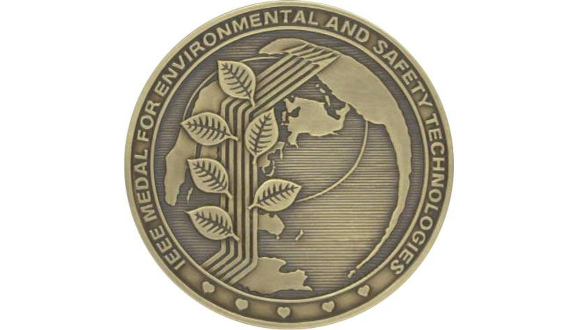TAU professor awarded top electrical engineering prize for environmental technologies

Professor Hagit Messer-Yaron uses existing wireless communication to monitor meteorological phenomena
Support Tel Aviv UniversityProfessor Hagit Messer-Yaron of the Fleischman Faculty of Engineering at Tel Aviv University (TAU) has been awarded the 2024 IEEE Medal for Environmental and Safety Technologies for her outstanding “contributions to sensing of the environment using wireless communication networks.”
IEEE, the Institute of Electrical and Electronic Engineers established in 1884, is the world’s largest international professional association, with about 450,000 members worldwide. IEEE strives to advance technological innovation and entrepreneurship for the benefit of humanity, and the IEEE Medal is regarded by electrical engineering researchers as the “Nobel Prize” in their field.
Professor Messer-Yaron’s research addresses two of today’s greatest scientific and technological challenges: climate change and its implications for life on earth, and processing big data in AI systems. The first challenge necessitates close monitoring of precipitation and other climatic phenomena in any place inhabited by humans. Today, the presence of people is highly correlated with the existence of wireless communication networks.
“The technology we developed enables processing and analyzing the ‘Big Data’ collected by these existing communication networks for other purposes,” Professor Messer-Yaron says. “Specifically, it uses changes in signal intensity to monitor meteorological phenomena in general and precipitation. This is a breakthrough in monitoring climate change and the ways to address it.”
Professor Messer-Yaron’s original research enables the use of existing coverage of cellular networks to monitor weather and precipitation, eliminating the need to install separate infrastructures of weather radars and local designated stations that would be sufficiently widespread to provide reliable measures.
Professor Messer-Yaron first presented her novel idea in the leading scientific journal Science, and a 2009 study demonstrated that it can also be used to predict flash floods. For these achievements, Professor Messer-Yaron and her coresearchers received the Best Inventor Award from the World Intellectual Property Organization (WIPO). In recent years, following Professor Messer-Yaron’s work, research on opportunistic environmental sensing has grown significantly.
“I am thrilled to receive the IEEE Medal, and very pleased that my work is being recognized,” Professor Messer-Yaron says. “I see great importance in utilizing existing technologies for the benefit of humankind and wish to thank my colleagues and students at TAU and in other research groups for their contribution to advancing this concept.”
Current challenges have generated considerable interest worldwide in this sustainable technology, including the establishment of a cohort of over 100 researchers working to implement it with EU funding and an initiative for promoting it in Africa.